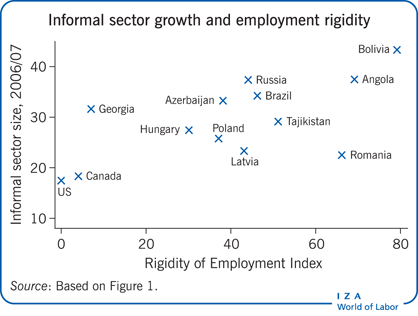Elevator pitch
Employment protection legislation aims to shield employees against unfair dismissal and earning reductions at the time of job loss. Theory suggests that employment protection stabilizes employment over cyclical upturns and downturns without necessarily increasing general unemployment. However, recent evidence from transition and emerging economies shows that employment protection legislation tends to raise unemployment among disadvantaged groups, particularly youth, and may increase informal work. Employment protection policies thus require careful consideration of their unintended effects.

Key findings
Pros
Employment protection legislation can remedy some labor market failures.
Introducing stricter legislation can stabilize employment and unemployment over the business cycle.
Employment spells can be lengthened and workers’ earnings stabilized by introducing employment protection.
Cons
If too intrusive, employment protection legislation can increase unemployment among vulnerable groups, especially youth.
Experience shows that excessive protection can cause longer unemployment spells.
Labor market institutions with strict legislation may lead to higher informal employment.